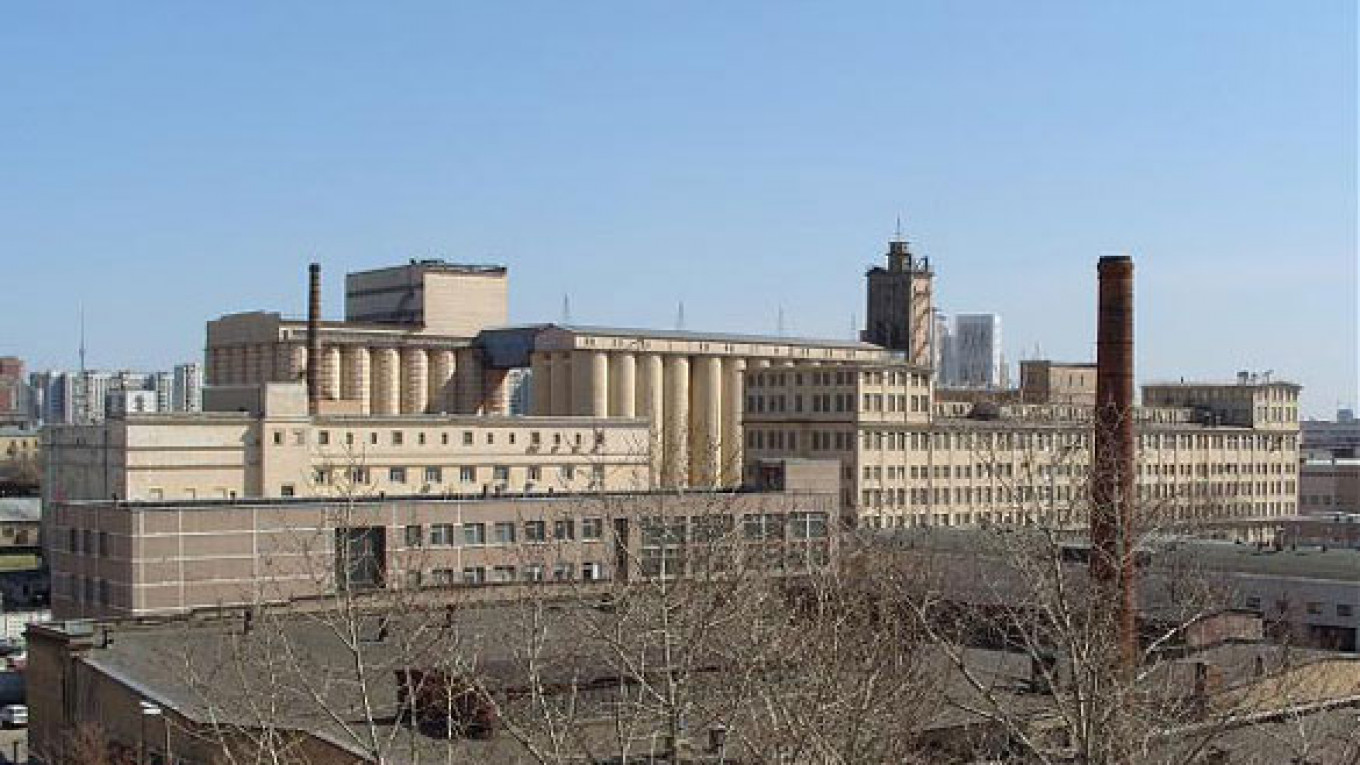Real estate developer Capital Group is buying out businessman David Yakobashvili's stake in Melnichny Kombinat No. 4, a hulking Soviet-era grain facility on Shmitovsky Proyezd next door to the skyscrapers of the Moscow City business center, said source close to the businessman, reported Vedomosti.
The deal comes after the City Hall's planning commission approved the construction of 350,000 square maters of residential real estate on the granary's 10-plus hectares last November.
Yakobashvili — ranked by Forbes as Russia's 115th richest person in 2013 with a fortune of $950 million — owned a 28 percent share of the facility as of the end last year, according to the company's list of affiliates. His business partners Gavrill Yushvayev and Timofei Klinovsky also each own 28-percent stakes.
The granary's redevelopment will be spearheaded by Yushvayev together with Capital Group, which is building the Oko towers just down the road in Moscow City, the source said. These two are negotiating with Yakobashvili to buy out his stake.
Of the 350,000 square meters planned, 250,000 will be under the aegis of private investors, while 100,000 will be paid for out of the funds of a investment program for the resettlement of residents of the neighboring Kamushky district, a huddle of Soviet-era low-rise apartment blocks lodged at the foot of Moscow City's glass towers, an official from City Hall said.
The project will cost $500 million to $625 million, said head of Rose Group Andrei Nesterenko.
The founders of Vimm-Bill-Dann, Yakobashvili, Yushvayev and Sergey Plastinin bought Melnichny Kombanat No. 4 in 2005 for $100 million, Plastinin said in 2006, before leaving the project. Initially, the plan was to build a mixed office-residential complex of 1 million square meters, but this blueprint had to be jettisoned to bring it into line with new policies from City Hall.
Though the granary is located next door to the teeming construction site of the still-expanding business center and ringed by major roads and railroads, apartments will enjoy demand thanks to their proximity to the infrastructure of the Moscow City, Nesterenko said.
A Message from The Moscow Times:
Dear readers,
We are facing unprecedented challenges. Russia's Prosecutor General's Office has designated The Moscow Times as an "undesirable" organization, criminalizing our work and putting our staff at risk of prosecution. This follows our earlier unjust labeling as a "foreign agent."
These actions are direct attempts to silence independent journalism in Russia. The authorities claim our work "discredits the decisions of the Russian leadership." We see things differently: we strive to provide accurate, unbiased reporting on Russia.
We, the journalists of The Moscow Times, refuse to be silenced. But to continue our work, we need your help.
Your support, no matter how small, makes a world of difference. If you can, please support us monthly starting from just $2. It's quick to set up, and every contribution makes a significant impact.
By supporting The Moscow Times, you're defending open, independent journalism in the face of repression. Thank you for standing with us.
Remind me later.






